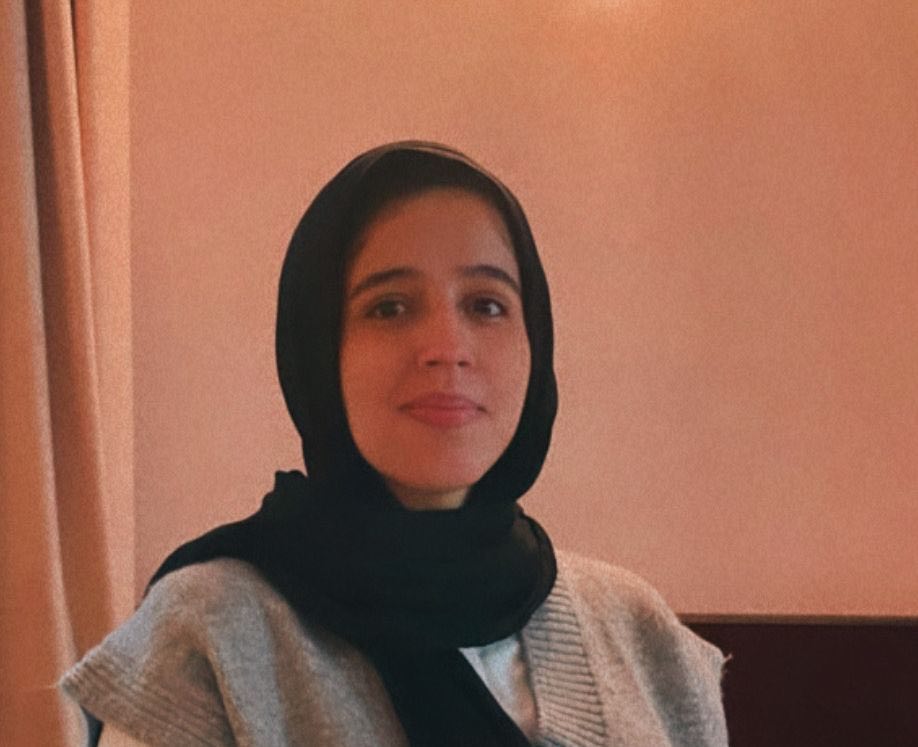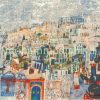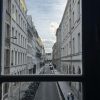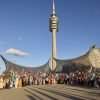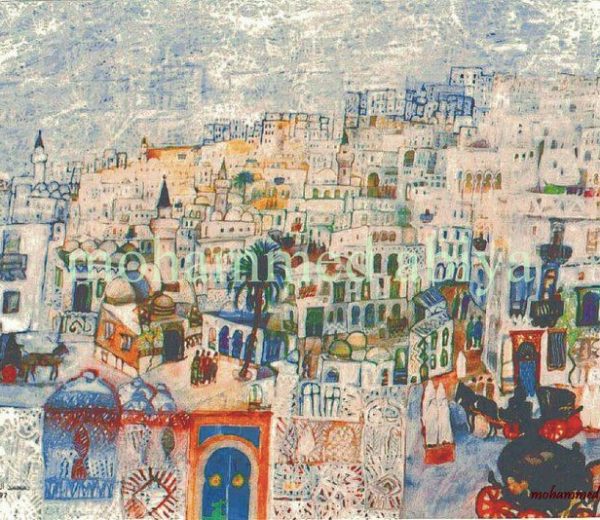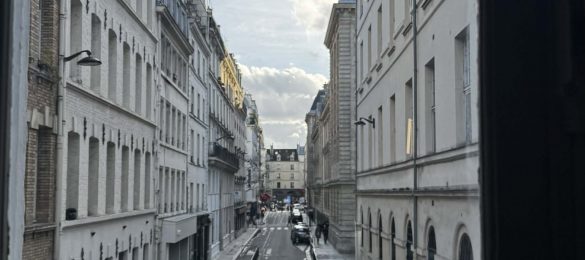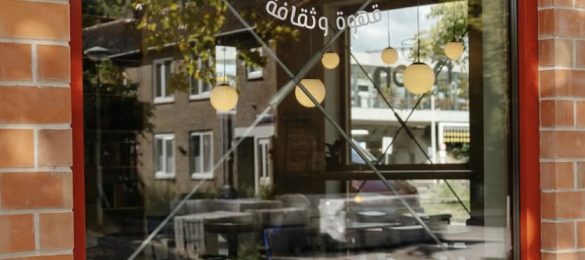Art is one of the most important aspects of our life. We sometimes tend to forget its importance with the hustle of life though it is a source of expression and it is one of the first things we learn from a young age. We begin to experiment with colours and draw randomly. The artistic scene in Libya has emerged quickly post the revolution and I have come across a very unique Libyan artist named Faiza Ramadan.
Her work touches the soul instantly and I knew I must interview her for this piece. Talking with Faiza after seeing her work over the years was so heart-warming and she was so easy to talk to and her story is so inspiring. Faiza Ramadan is a 32-year-old Libyan artist. She graduated with a high diploma in business administration.
She told me that around 2008 and 2009, all she thought about was securing a job and how to make a living. During that time, there was a high influx of foreign companies and the situation was about accelerating the country’s economy. She didn’t think about art and she wasn’t even pursuing it. She started to practice this hobby when she was only 15 and but didn’t have that much of an idea that it will become an integral part of her life later on.
However, Faiza got back to painting in 2011 during the outbreak of the revolution. Faiza described it and I quote ‘’People started using art after the revolution, it changed many aspects about Libya and Libyans and it was incredible”.
During that period, she did political art and she painted more and more. She started to receive positive feedback and her uncle who is a professional artist told her that she was making progress. For her, painting was a therapy, especially during the revolution, and art fulfilled this gap or void, it was sort of a psychological art.
Art makes us feel feelings we may not feel on a regular basis and it is part of the process of making it for any artist. I asked her what art made her feel. Through art, she felt that she has a goal in life. Before practicing art, she was contributing to the country’s economy but it wasn’t enough.
‘’It is more of a psychological goal, I feel happy, relaxed and at peace. I found my purpose through art. I can see a future now. it gives me a purpose’’.
She participated in many exhibitions but one that was a highlight in her journey the one held by the French embassy in Tunis in 2017. It meant a lot to her to participate as she wanted to showcase her work to change the perception around women in Libya, So many people still think that women are hidden in Libya.
The event was called For Libya festival and it included art and she got to meet other talented Libyans from different fields such as journalists, writers, etc.Faiza focuses on the process of painting and when she is finished with the piece then she barely goes back to it because once it is done, then it is done.
She is always excited about the next piece, Faiza said. Paintings would have many themes and styles and for Faiza, the theme depends on her emotions and she is not sure if an external factor affects her art, but if the observer would translate it based on a certain situation then it is definitely not on purpose. In addition, an artist can be inspired by many things and anyone.
She is inspired by the Libyan artist Najlaa El Fitouri, her message is ‘‘I paint a dark story in beautiful colours”. Of course, she is affected by the situation of the country but her message is so beautiful, Faiza added. She admires her a lot. Also, she admires Mohammed Bulifa on his work, he is independent and he does not depend on any artistic organization for funding and he uses social media in a very smart way to push for his work and Faiza thinks it is very smart. These two artists represent different aspects of inspiration.
However, this journey surely has struggles and many ups and downs. She still has a job and she cannot make a living from art only as her artistic work is expensive. As an artist, traveling is so hard because it is almost impossible due to the endless restrictions imposed on Libyans. In addition, the art market in Libya is still weak as Libyans don’t buy art from many artists.
Regardless of the growing scene in Libya, the market is weak, according to Faiza, when the attack on art was strong during the 70s and 80s and activities were almost prohibited. Thus, that generation grew up in a culture without art and their kids were also raised without art or without giving any attention to art.
Even in companies, people don’t see empty walls as there is a need for artistic work to be put on them and Libyans houses are used to having empty walls while she remembers a foreign guy who moved to Tripoli before the revolution and he was looking for artistic work to hang on the wall of his house because he couldn’t stand an empty wall.
There are those who appreciate art but the financial situation in Libya is not helping to invest in art as it is relatively expensive and it is risky to afford it during this time. Foreigners are the most buyers of Faiza’s work and if Libyans, there are those who are based abroad who would invest in her work. Though Libyans in Libya; are impacted by the price. Foreigners would consider art as a necessity and it is important to them but for Libyans, the economic situation is controlling the scene even for those who are financially stable as the future remains unknown.
There is still more to be done in this regard to encourage people to invest in art and make it a habit with young generations. Nevertheless, when it comes to support, the main supporters of her journey are her family and friends. They give her their opinion and tell her not to stop and keep on painting.
They tell their friends that Faiza is artist to encourage her more and more. Although she found her purpose through art but the journey remains full of surprises and changes. Faiza is still learning and growing as an artist but she learned so much so far and her advice for artists in Libya as she said ‘’For any artist in Libya, make sure to have a style, it is important. You have to get to know new people, build a network. It is an opportunity that will help you expand.’’ You can follow Faiza’s work on Twitter: Faiza Ramadan and on Instagram: faiza.ramadan
